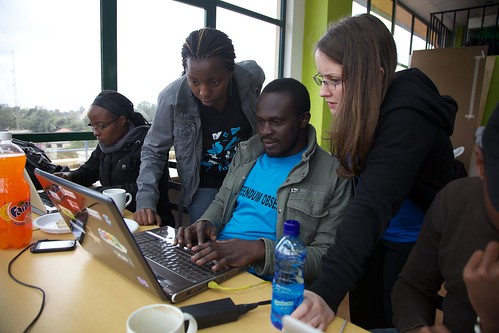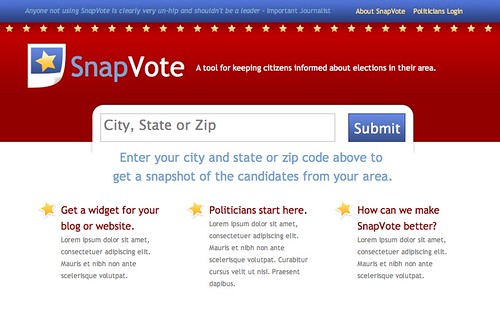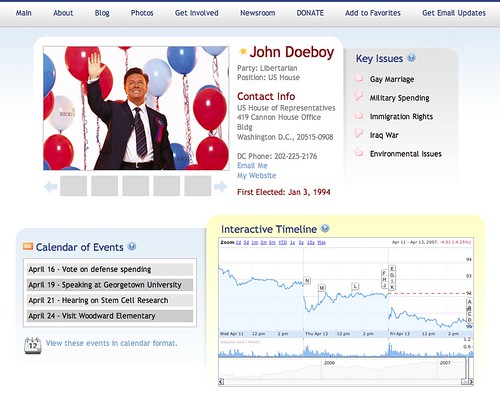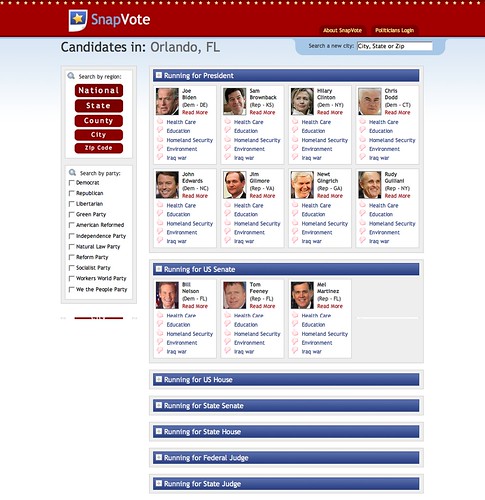It’s been hectic lately… In the course of one week I’m going from the madness that is running any situation room for a major Ushahidi deployment (Uchaguzi), to what is looking to be one of Africa’s best tech conferences (Tech4Africa).
(video by Jon Shuler)
Uchaguzi: Monitoring Kenya’s Referendum Vote
Uchaguzi is a deployment of the Ushahidi platform that marries up traditional election monitoring groups and practices with voices from the crowd. It was an experiment in a more holistic approach to monitoring an election.
Our goal is to make this an election monitoring platform that can be used by anyone (at least in E. Africa), as a mixture of the core Ushahidi platform, with a package of customized plugins that do things such as:
- Map known election monitor phone numbers to specific locations
- Content-map the election monitoring number codes into an automated full report
- Use shape files to get make reports not just point-based, but heatmapped
- Ticketing system for escalated items
- Ability to mark items as “actionable” and/or “action taken”
We started Ushahidi 2.5 years ago here in Kenya to crowdsource and visualize some of the stories coming from ordinary people in the midst of Kenya’s post election violence. Last Wednesday the whole country went to the polls again, this time to vote “yes” or “no” on a referendum for a new constitution for the country – arguably something even more important than a politician who will only be in office for 5 years.
Being Ushahidi, and this being Kenya, we were ready to do our part. This came in the form of Uchaguzi, a deployment where we partnered with local groups like SODNET, Twaweza, CRECO and HIVOS. Ordinary Kenyans and election monitors alike could send in text messages to a local shortcode, which was widely advertised before the date. (read more here)
Over 50% of all incoming reports were verified in real-time, and an overwhelming 60+% were reports that things were going well. A win for both the deployment and the country!
A Thank You
Through a combination of great partners and a huge volunteer outpouring of time at the iHub, we were able to manage the inflow of information, mapping and verification.
The Uchaguzi project brought more than 70 volunteers to the iHub August 3rd and 4th (with at least 12 others joining remotely). Volunteers helped map and process over 1400 messages as well as assisted our team of Ushahidi developers fix bugs that popped up during the Uchaguzi deployment. The volunteers met the challenge with incredible enthusiasm, focus, patience, and a spirit of fun! We couldn’t be prouder to have such a wonderful Ushahidi community!
“We” isn’t just the Ushahidi team. Yes, deployments like this do take some time to customize and we did build some new functionality in (than everyone now has access to use), but it’s largely not the technology, it’s the people. The 80+ volunteers, tech and non-tech alike, were amazing and came through in a big way. Not enough can be said about Jessica Heinzelman, Ushahidi intern for this summer, who wrangled all of the volunteers and operations for the situation room.
Media Hits
Fast Company
Christian Science Monitor
Business Daily Africa
UN Dispatch
CNN iReport
All Africa
Reuters
Internews




